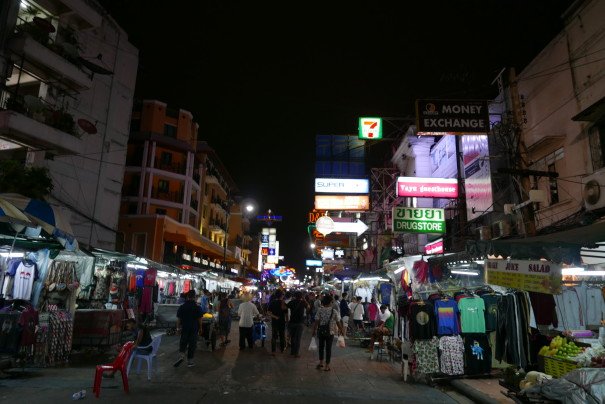
A Modern‑Day Pirate Tells His Worst Story

A Modern‑Day Pirate Tells His Worst Story
Singhas in Bangkok
The humanitarian mercenary, who I recently met for beers off Khao San Road in Bangkok, goes by “Doc” in the Middle East and, here in southeast Asia, “Fox.”
I showed up twenty minutes early to our rendezvous at the Rainbow Hostel. He was already there, eating naan, when I arrived. Fox chose the place, a cramped spot “run by an Indian Sikh, a friend of ours,” he had said over email.
The “ours” referred to his humanitarian group, a small outfit made up of former military men who specialized in delivering aid to war zones; “the world’s most fearless and dangerous charity,” he called it.
When I arrived at the Rainbow Hostel, there was an Indian family with several young kids screaming and running up the aisles, treating the place like a playground.
Fox was easy to find. He was the only one with an eye patch (ISIS mortar, Iraq 2015). He also had a bandana on his head, a scraggly goatee, and two missing teeth (rifle butt of a Karen mercenary, Myanmar 2013). By most definitions, he was a pirate.
Fox, 30, was short, skinny, and though he appeared older because of his injuries, he would seem younger than his age without them. But he was a serious man and after I sat down, he got right to business.
“This is most likely my final mission,” he explained to me. I had yet to order my first Singha.
Fox was in ill health. He had diabetes and felt that, by running humanitarian missions into some of the world’s most remote and dangerous areas—Iraq, Syria, West Papua, southern Myanmar—he was working himself to death. By the looks of him, I had no reason to doubt it.
“I am trying to get out of this field cause it’s killing me,” he said as my beer came. I had arrived in Bangkok less then three hours earlier and the cold brew felt refreshing in a way that only your first beer in a foreign country can.
Fox said he was tired of operating within a “gray state,” he put it, where he couldn’t speak openly of his professional escapades. But here he was spilling the beans to me, a virtual stranger who had reached out over email from Cambodia and flew over because I had nothing better to do.
I asked Fox about his missing teeth. Or rather, he brought it up and I asked to hear more.
They came out a year or two ago. He had just rescued 11 trafficked little girls from a “stateless land” in the Moei River between Myawaddy, Myanmar and Mae Sot, Thailand.
“We went back for more and our interpreter kind of sold us out,” he said. The next thing Fox knew, he was getting “butt-checked with a rifle to the face.”
“When I woke up, I was on the other side of the bank, in a parked truck on the Burmese side,” he explained as I sipped.
He came to to the sight of a gunman rattling three of his teeth in a little glass jar. Fox tried to move but his hands were handcuffed. The guard was chewing betel nut, Fox said, lots of it. Soon he was very high.
After a while, Fox got up, walked to the guard and waved his handcuffed hands in front of his face. The guard betrayed no recognition. Fox reached into his pocket, extracted the keys and freed himself. He then waded the twenty yards across the river (“it’s shallow in the dry season”) to the safety of Mae Sot.
“Drugs saved my life that day,” Fox joked. “But, honestly, it’s like the worst story I have.”
Small-group trips with R&K
Journey alongside chefs, raconteurs, and Roads & Kingdoms for the deepest culinary tours on earth.
